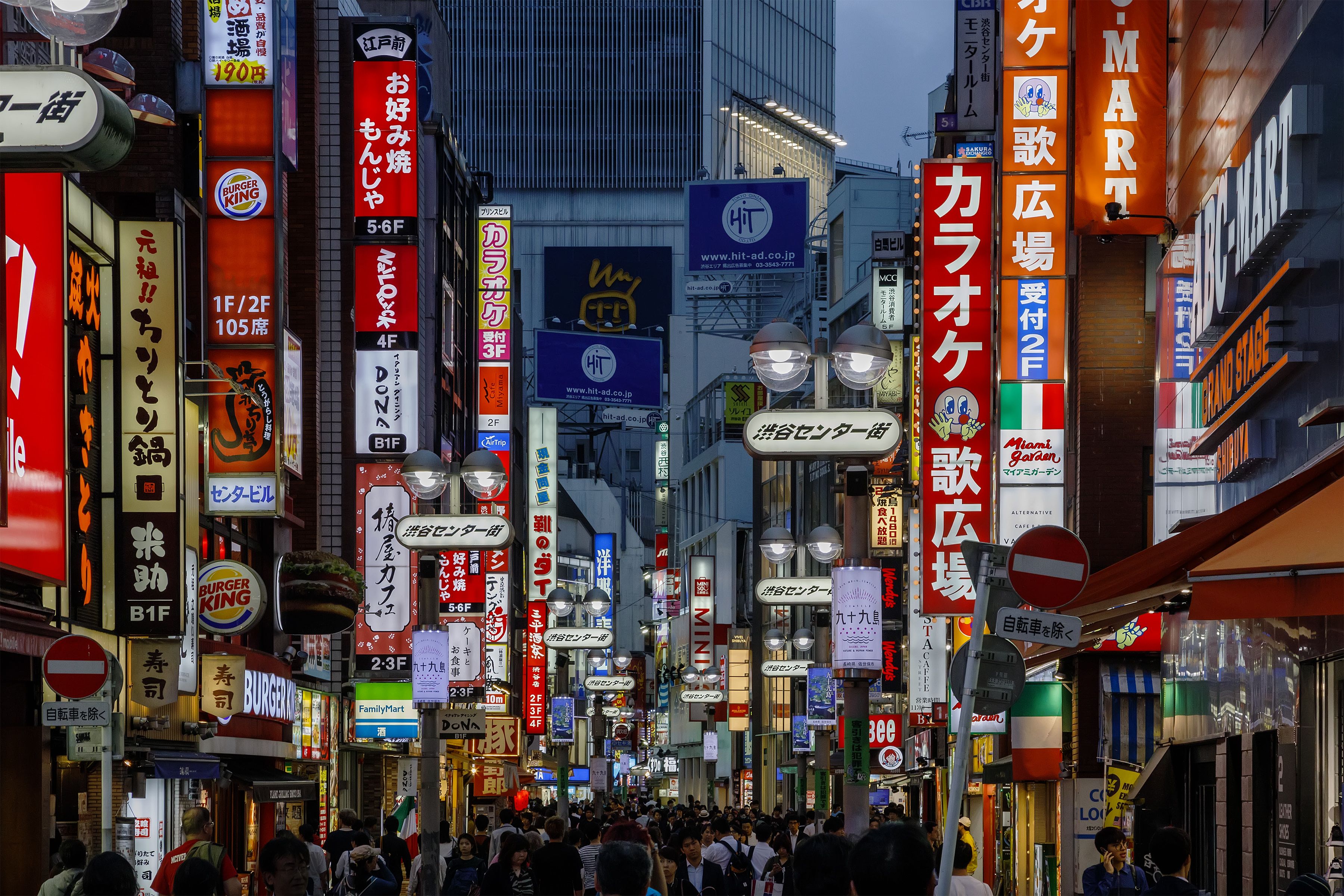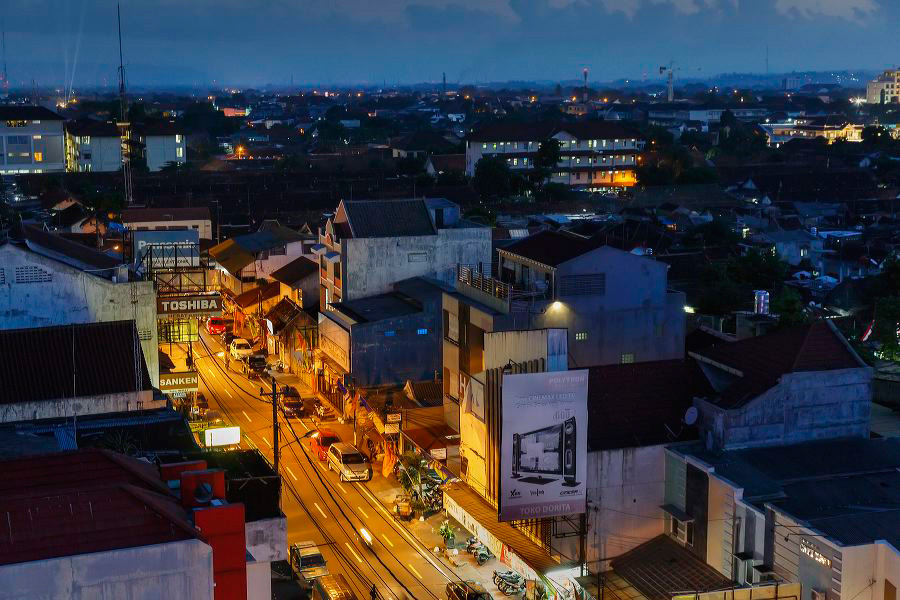Some Personal Thoughts on Indonesia’s Energy Market
Indonesians have a different approach to energy use than people in most other countries in East Asia. Words like “progress” and “development” have much less buzz than in neighbouring Malaysia, Thailand, and especially Vietnam.
By Hans Sautter, Primafila AG photographer & producer
The approach to life on the grid in Indonesia is the opposite of Japan, where small rooms are filled with electronics, heating carpets, panel heaters, fans, air conditioners, extra large television sets, multi-door refrigerators, and many other powered gadgets to make life supposedly easier, but which take away limited living space.
It’s also quite different from Thailand, where I experienced the impact of development and plugged-in life close-up – as well as time-lapsed – at a remote beach area on a remote island in the Gulf of Thailand.

On the Grid in Thailand
Aptly called Lonely Beach, there was only thatched roof bungalow accommodation and two or three mom-and-pop shops for basic necessities. There was no electricity except by generator, no Internet, no reception for mobile phones. It was an idyllic place, the perfect getaway.
Four years later, Lonely Beach had discos, girlie bars, massage and tattoo parlors, Internet cafes, air-conditioned and concrete-walled bungalows, and a large resort. It had developed from a palm forest with a few buildings made of wood into a typical bustling, noisy Thai tourist destination. The Thaksin-led government was planning a large casino to attract affluent visitors.
A fisher family I used to stay with first got a refrigerator – usually the first purchase when people in remote areas get on the grid. The next purchase was a large flat-panel TV, a stereo with huge speakers, and so on. The head of the family was less and less at home, hustling for money, while his wife and children spent all day in front of the TV screen.
Natural Consumption

This may seem an extreme example, but this kind of unhinged and unbridled development is difficult to imagine in Indonesia. Development in Indonesia is much slower, much more deliberate and measured.
For reasons of mentality, culture, tradition, family structure, and even when on the grid – electricity is used sparingly. Lighting in-house is relatively sparse and low wattage.
In Yogyakarta, a major city, air-conditioning is surprisingly rare, except in hotels, large shopping malls, and cinemas. Almost all restaurants do without. TV sets are much less common than in Malaysia, Thailand, and especially Japan, where TV screens are everywhere and run nonstop. Stereo sets and other electronic gadgets are uncommon, with the exception of ubiquitous mobile phones.
Many small restaurants and street stalls in Yogyakarta prepare food on charcoal stoves. My friends Nunik and Trianto, a couple living on the outskirts of the city, on the slopes of Mt. Marapi’s majestic volcano, cook with wood. Nunik is a teacher and Trianto a tourist guide, so theirs is not a life of poverty. They don’t own a fridge, because they have no need for refrigeration. Almost all food supplies come fresh daily from the garden and the fields around their house. They own a small radio, but no TV. Their only energy needs are half-a-dozen low-watt light bulbs and a few outlets to charge mobile phones. This is quite typical for the majority of Indonesians living outside the bigger cities or the touristic areas of Bali.
A Notable Tale
Life and thought in Indonesia often remind me of the following story.
An American management consultant, on holiday in a fishing village somewhere in Asia, watched a little fishing boat dock at the quayside. Noting the quality of the fish, the consultant asked the fisherman how long it had taken to catch them.
“Not very long,” answered the fisherman.
“Then, why didn’t you stay out longer and catch more?” asked the consultant.
The fisherman explained that his small catch was sufficient to meet his needs and those of his family.
The consultant asked, “But what do you do with the rest of your time?”
“I sleep late, fish a little, play with my children, have an afternoon’s rest under a big tree. Evenings I go into the community hall to see my friends, have a few beers, play drums, and sing a few songs. I have a full and happy life,” replied the fisherman.
The consultant ventured, “I have an MBA from Harvard and can help you: start by fishing longer every day and then sell the extra fish you catch. Buy a bigger boat with the extra revenue. With the extra money, you can buy a second and a third, and so on, until you have a large fleet. Instead of selling fish to a middle-man, you can negotiate directly with processing plants and maybe even open your own. You can then leave this little village and move to a city, here or maybe even in the United States, from where you can direct your huge enterprise.”
“How long would that take?” asked the fisherman.
“Oh, ten, maybe twenty years,” replied the consultant.
“And after that?” asked the fisherman.
“After that? That’s when it gets really interesting,” answered the consultant, laughing. “When your business gets really big, you can start selling shares in your company and make millions!”
“Millions? Really? And after that?” pressed the fisherman.
“After that you’ll be able to retire, move out to a small village by the sea, sleep late every day, spend time with your family, go fishing, take afternoon naps under a coconut tree, and spend relaxing evenings having drinks with friends …”
Hans Sautter has been based in Asia for more than 40 years and currently works from Tokyo, Yogyakarta, and Bangkok. His work has appeared in Smithsonian, National Geographic, and WWF publications, and in magazines such as Time, GEO, and Nature. Out from behind the camera, Hans enjoys a night at a jazz club, conversation and laughter with friends, relaxation in his very Japanesque home, and extra time to sleep.
Recent Posts
- Memorial Concerts “79 Roses” 05/12/2024
- Desire: The Carl Craig Story – Documentary, Music, Biography by Jean-Cosme Delaloye 29/04/2024
- Correspondent Jean-Cosme Delaloye also makes documentaries 14/02/2024
- American Express Previews: Gentlemen’s Sports 02/04/2019
- American Express Previews: Tennis & Golf 02/04/2019
